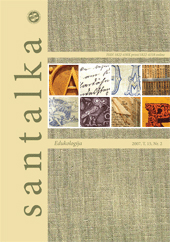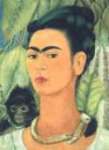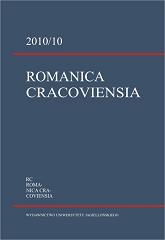Author(s): Barbara Sosień / Language(s): French
Issue: 10/2010
The decapitation of the Louis XVI, regardless of its political dimension, constitutes one of important sources of the Romantic imagination, not only French. In the literature of this period, in various functions and contexts, the images of the cut head appear in the works of Ch. Nodier, J. Janin, V. Hugo, A. Dumas-father, H. Balzac, A. Esquiros, G. de Nerval, Ch. Baudelaire, Lautréamont, Villiers de l’Isle-Adam... What is characteristic, in French historical novels, those representations become particularly frequent only since years 20. of the 19th century. A separate place is given to works which deal not with the relatively recent execution of Louis XVI by guillotine, but with the decapitation of the English king, in days of Cromwell, so one and a half years before, in London. One of those novels is Dumas’ Vingt ans après (Twenty Years After). However we must pay closer attention to three Dumas’ novels from the Revolution’s time, namely La Comtesse de Charny (The Countess de Charny), Chevalier de Maison-Rouge (The Knight of the Red House) and Le Drame de Quatre-vingt-treize (Drama of 1793; not translated in Polish), as well as a less known novel of Ballanche L’Homme sans nom (The Man without a Name; not translated in Polish). The word “head” appears in those works first in expressions and contexts which seemingly have nothing common with the decapitation; however a gradual dramatization and poeticization of this motif come after. By referring to the category of the dynamic symbolic imagination, we would say that the cut royal head, as one of the important mythemes, become, at the same time, one of the grains of mythical basis of the civilisation.
More...




